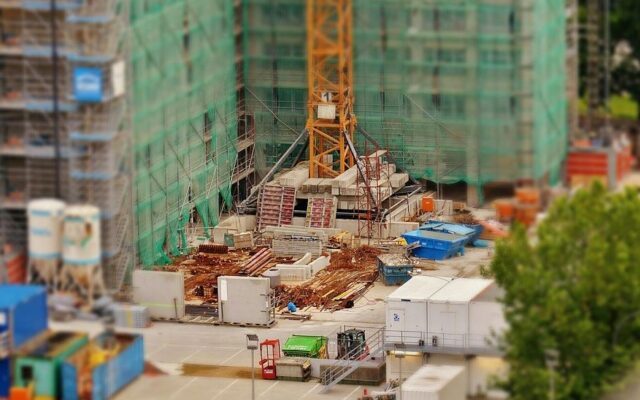
How Construction Companies Can Help Tackle Waste Issues
In 2014, the UK sent 5.6m tonnes of construction and demolition waste to landfill. While this represented a huge 89.9% recovery rate for the rest of the waste from this sector, there is quite clearly still a large amount waste being sent to, what should be, the last resort.
As one of the biggest waste producing sectors, there are great rewards to be gained from a push for new attitudes in construction and demolition to the way waste is dealt with. On top of all the great progress made by the sector in recent decades, there are additional ways in which construction and demolition companies in the UK can help to reduce waste entering landfill by looking at every stage of their processes.
When you put greater consideration into the handling of your waste – why you have it and what you do with it – there are a range of benefits across the board, including for:
You and your company…
The first thing to look into when it comes to waste at your company is ordering levels. According to the 2008 article on the topic in Construction News, 60 million tonnes of what we order in the UK goes to waste. This is due to people ordering more than they need, contributing a large quantity of good materials going to waste.
By monitoring your ordering levels and improving the way you estimate for materials, you can save money being wasted on things which are never used. You’ll also save time and money on arrangements for materials to be taken away through skip hire and other waste collection channels.
Storage and handling of materials at your end can also contribute to less waste. Where materials are damaged in transit, or because they haven’t been stored properly, they become unusable. These materials are then entering your waste channel and costing you money when replacements are needed – in addition to the cost of having them disposed of.
The environment…
There are two main ways in which the environment can benefit from your stricter waste handling practices. The first is through less waste being unnecessarily dumped into landfill sites, the second is through fewer virgin materials being used up in construction.
Where virgin materials are required, they put an extra strain on the environment, stripping natural resources and increasing the carbon footprint of a material when shipping and processing are taken into account.
Featured in the news recently, August 2nd 2017 was named Earth Overshoot Day. This is to mark the point at which the world used up more natural resources than the Earth has to offer in a given year. The fact that this occurred only eight months in the year highlights how important it is to reuse and recycle as much waste from the construction industry as possible.
The industry…
Since the construction and demolition industry accounted for over half of the UK’s waste in 2014, there is clearly a pressing need for a reduction in how much waste goes into landfill sites.
Through better practices at a company level, the industry will benefit from a more sustainable future. Costs will be lower when there are more materials available – especially if there is a less intensive resourcing process – making channeling your waste into recycling and repurposing processes a boon for construction projects.
When the construction and demolition sectors are at their most productive, employing sustainable waste handling practices, all of society and the economy benefits. Building new homes, businesses and transportation infrastructure, all while limiting the amount of resources wasted through the use of landfill sites, is key to the future – and quality – of the industry.
At Brown Recycling, we provide dedicated recycling for construction companies, taking everything from scrap metal to hardcore and rubble. We then filter the materials to recycle them or prepare them for reuse in the industry. It’s our aim to make the “zero to landfill” aim standard practice, something we’re passionate about for all the waste we receive.
This website uses cookies to enhance your browsing experience and deliver personalised ads. By clicking “Accept All Cookies”, you agree to the storing of cookies on your device to enhance site navigation, analyse site usage, and assist in our marketing efforts.




